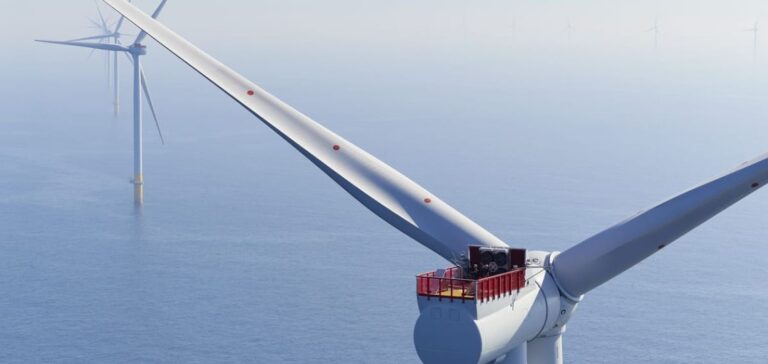Danish group Ørsted A/S has announced it is withdrawing from the Hornsea 4 offshore wind project in the United Kingdom, stating that current development conditions no longer ensure reliable execution nor a return aligned with its profitability standards. The project, with a planned capacity of 2,400 megawatts (MW), was intended to complete the Hornsea portfolio already under operation and development in British waters.
In a statement released on May 7, Ørsted justified its decision by citing “the continued increase in supply chain costs, rising interest rates and growing risks associated with construction and operations.” The company expects to record a charge of DKK3bn to DKK3.5bn (between $430mn and $502mn) related to the abandonment, impacting its Q2 2025 results.
A strategic decision to preserve shareholder value
Ørsted’s withdrawal from the Hornsea 4 project comes as the group remains committed to Hornsea 1 and 2, which are already operational, as well as Hornsea 3, currently under development. The combined capacity of the three sites is expected to exceed 5 gigawatts (GW), forming the largest offshore complex ever built to date.
According to Rasmus Errboe, the company’s Chief Executive Officer, Ørsted will retain the project rights to Hornsea 4 and “seek to develop it later in a way that creates more value for us and our shareholders.” This statement highlights the need for the company to prioritise economic interests in a volatile market environment.
Profitability challenged amid an unstable environment
The decision raises questions across the sector regarding the balance between industrial ambition and financial discipline. While Hornsea 4 had already secured the necessary permits, Ørsted opted to suspend its investments due to conditions seen as too unfavourable in the short term. The group has faced similar strategic adjustments in the North American market.
Performance for Q1 2025 remains strong, with net profit reaching DKK4.8bn ($655mn), supported by an 8% year-on-year increase in revenue to DKK20.7bn ($2.82bn), although still below analysts’ expectations as reported by FactSet.
Governance issues and alignment of interests
The suspension of the Hornsea 4 project comes at a time when Ørsted is under pressure to demonstrate its ability to allocate capital efficiently while meeting shareholder expectations. The trade-off made between project continuation and financial stability may raise concerns about the group’s decision-making criteria and internal priorities.
Rasmus Errboe emphasised the importance of “maintaining Ørsted’s financial discipline,” while keeping the possibility open to reconfigure the project should market conditions improve. This position reflects an effort to reconcile industrial ambition with governance requirements.






















